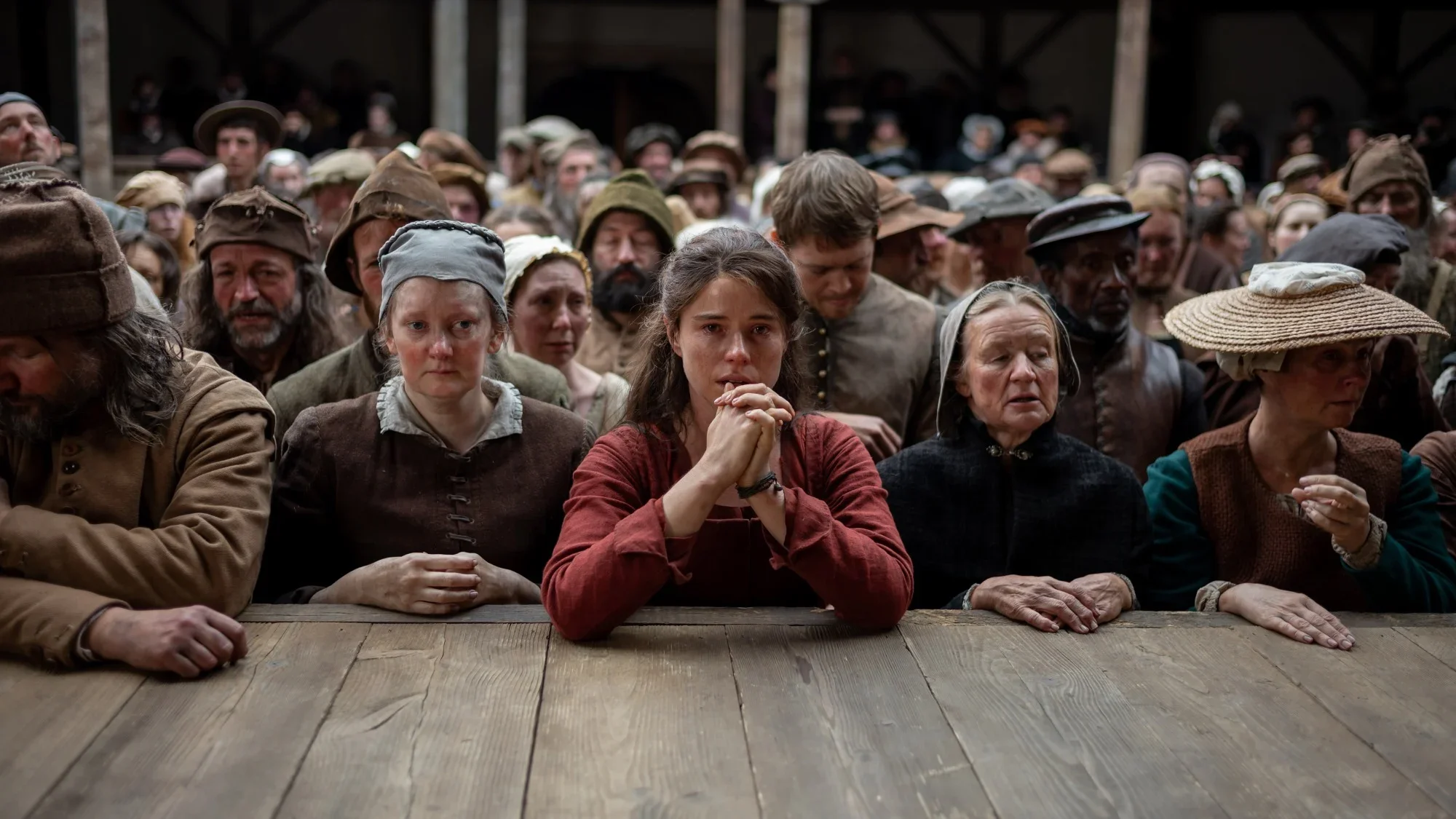Review - Hamnet
Directed by: Chloe Zhao
Written by: Maggie O’Farrell, Chloe Zhao
Starring: Jessie Buckley, Paul Mescal, Joe Alywn
Running Time: 125 Minutes
Rating: 5/5
Thunderous in emotion yet ghostly in touch, Hamnet transforms the tragedy of loss into a haunting meditation on survival, life and love. Anchored by Jesse Buckley’s career defining performance; Chloe Zhao’s Hamnet is a gutting portrait of grief that will leave you breathless.
Grief does not arrive quietly. It explodes, reverberates and lingers across lifetimes. Hamnet is less a film than one of a shattering seance, a ghostly dirge in which every candle flickers, every shadow and every silence is burdened by death’s inevitability.
Chloé Zhao’s Hamnet is an overwhelming exploration of death and grief; an earth-shattering reminder of devastation that echoes long past tragedy. Pain lingers forever, consuming body and soul, threatening to extinguish even the faintest sparks of joy. This is not merely a film about one family’s loss, but a rupturous meditation on how death transcends lifetimes, echoing across eternity — and yet, in its shadow, a quiet reminder about the living: what we do to keep breathing, loving, and creating in honor of those we have lost.
Adapted from Maggie O’Farrell’s acclaimed novel, Zhao’s vision strips away Shakespeare’s mythos to reveal something more intimate and universal. We glimpse William Shakespeare (Paul Mescal) only sparingly as the playwright-genius; instead, the film devotes its gaze to his life with Agnes (Jesse Buckley) — their courtship, marriage, children, and ultimately, their unthinkable grief. What makes Hamnet so staggering is that this story could belong to anyone. By denying Shakespeare’s celebrity as the central focus, Zhao reframes the narrative: this is not about fame or legacy, but about family, loss, and the unbearable void left in the wake of tragedy.
Buckley’s performance as Agnes is nothing short of colossal. She channels both the exhilaration of motherhood and the cataclysm of its loss. Her laughter in the first half — radiant, buoyant, intoxicating — becomes a cruel memory when grief takes hold. Her guttural cries, unleashed in the forest, reverberate with a ferocity that shakes through generations. Her vacant stares, her primal physicality, her aching silences — every second is etched with relentless passion and devastation. It is, quite simply, one of the finest performances in years, and the Oscar may as well already have her name engraved upon it.
Mescal, following his revelatory turn in Aftersun, delivers a portrait of quiet rage and buried sorrow. His William is torn between art and family, passion and responsibility. His absence weighs heavy, his guilt burns silently, and in the final act, his whispers and whimpers cut deeper than one can imagine. “To be, or not to be” — they are no longer just words of a playwright; through Mescal, they become an earthquake of pain and resilience. The question is not merely philosophical — it is visceral: how do we live when life has taken everything away?
The supporting cast adds even greater weight. Jacobi Jupe as Hamnet himself is a revelation: wide-eyed, clumsy, inseparable from his twin Judith. His youthful vitality is so tangible that his absence carves an unbearable silence into the film’s second half. His presence — fleeting but indelible — heightens the devastation felt by both Buckley and Mescal, striking blows that ripple through every frame.
Zhao’s direction is immaculate — a marvel of control, blocking, and framing. Each image feels haunted, ethereal, suspended between reality and ghostly afterlife. Forest shadows, candlelit corridors, the hidden entrances of a stage — these spaces are not mere settings but spiritual echoes of grief.
The screenplay, seismic in its intimacy, channels O’Farrell’s prose into a universal meditation on parental loss. Each line carries the weight of universality; the words ring not as Shakespearean myth but as shared human truth. This is not a tragedy locked in history but a wound that transcends centuries. By the final half-hour, the film becomes a cathartic exorcism — primal emotion unleashed, yet sculpted with restraint and grace. In its final note, Zhao suggests that even amidst devastation, hope flickers. That perhaps the only way to survive grief is to channel such pain into something more.
Hamnet left my screening in collective silence, broken only by sobs. As a new father, the film destroyed me. Zhao has created a work of devastating beauty, a cinematic requiem that feels both timeless and urgently personal.
A masterpiece.
Hamnet will be released in theatres on November 27th.



